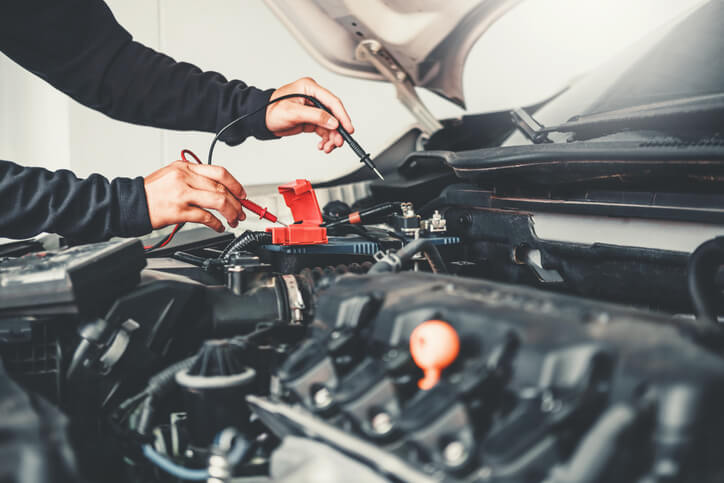Understanding the Importance of Calibration Procedures After Hybrid Technology Training
As hybrid and electric vehicles become more common on the roads, the safety, reliability, and performance standards have never been higher. Hybrid technology training equips you with the knowledge and skills to service these advanced vehicles, but once the training ends, keeping these systems properly calibrated is vital.
This blog post explores what calibration is and its importance to the various automotive components that rely on it.
The Importance of Routine Calibration
Hybrid and electric vehicle (EV) calibration involves fine-tuning the vehicle’s control systems, including battery management, power distribution, and regenerative braking, to optimize performance, efficiency, and emissions. This process ensures seamless integration between electric and internal combustion components (in hybrids) and enhances overall drivability and safety.
Calibration procedures are necessary to ensure the vehicles you maintain run at peak efficiency. From the accuracy of battery management systems to the responsiveness of regenerative braking, proper calibration affects every core component of a hybrid or electric vehicle. It’s the key to delivering consistent, high-quality results that customers can rely on.
Precision in Battery Management and Range Optimization
One of the most crucial aspects of hybrid technology is battery management. Even minor discrepancies in voltage readings can affect vehicle efficiency without accurate calibration. For instance, a miscalibrated battery management system may cause inconsistencies in power distribution, impacting overall performance. Regular calibration helps optimize battery function and ensure long-term efficiency.
As a trained hybrid and electric vehicle mechanic, you must ensure that battery management systems remain properly tuned. This protects the integrity of the batteries and optimizes the vehicle’s range and energy usage. Regular calibration guarantees that the battery cells charge and discharge uniformly, preventing premature wear and maintaining efficiency over time.
Maintaining Safety and Compliance Standards
Safety is paramount when it comes to high-voltage systems. Proper calibration helps prevent system failures that could lead to safety risks. For example, if a hybrid vehicle’s high-voltage inverter isn’t correctly calibrated, it might deliver inconsistent power, causing drivability concerns or damaging other components.
Staying current with calibration procedures ensures that the vehicles you work on meet or exceed industry standards, providing both technicians and drivers peace of mind. Routine calibration checks are a proactive measure that upholds safety, reduces liability, and enhances customers’ trust in your expertise.

Enhancing Performance Through Regular Calibration
Beyond safety, accurate calibration directly impacts the performance of hybrid and electric vehicles. Components like regenerative braking systems and electric power steering rely on precise calibrations to function seamlessly. A minor deviation in sensor readings can affect how smoothly a vehicle stops, steers, or accelerates.
By conducting regular calibration checks, you help maintain the smooth, responsive driving experience that customers expect from their hybrid or electric vehicles. This boosts customer satisfaction while setting you apart as a skilled, detail-oriented hybrid and electric vehicle mechanic.
How Hybrid Technology Training Sets the Stage
At ATC Surrey, hybrid technology training is designed to give you the foundational knowledge to handle the complexities of hybrid and electric vehicles. From understanding battery technologies to mastering diagnostic tools, you’ll be equipped to enter the industry confidently.
But the learning doesn’t stop after graduation. The principles you learn during training carry over into your day-to-day work. By staying informed about the latest calibration techniques and tools, you can continue to grow as a professional.

Start Your Career in Hybrid Technology Today
Calibration is a cornerstone of reliability, safety, and high performance. If you’re ready to make an impact in the growing field of hybrid and electric vehicle mechanics, start by enrolling in hybrid and electrical mechanic training at ATC Surrey.
Get the skills you need to excel in this dynamic industry—and ensure that every vehicle you touch performs at its best.
Are you interested in comprehensive hybrid and electrical mechanic training?
Contact ATC Surrey for more information.


